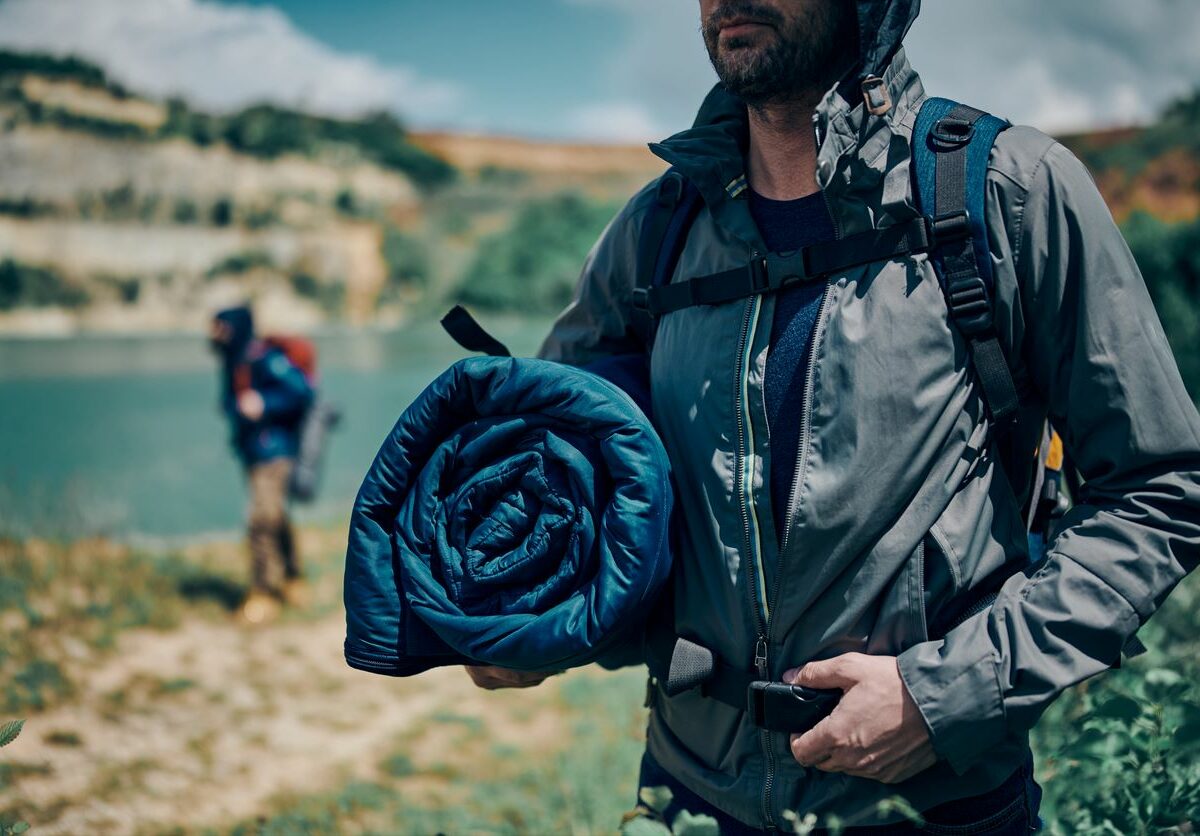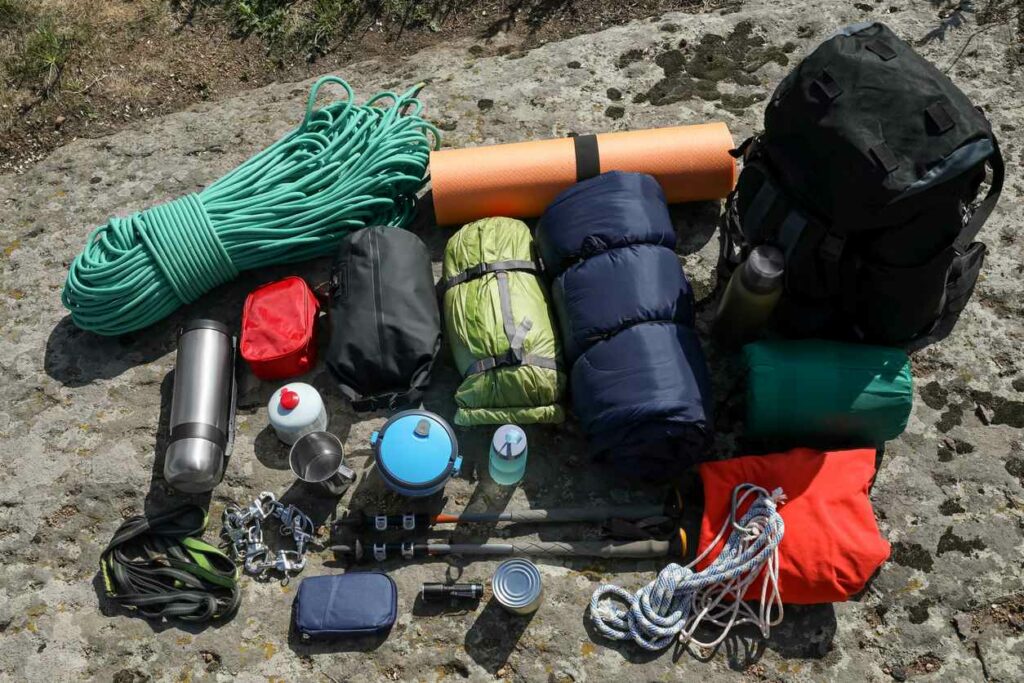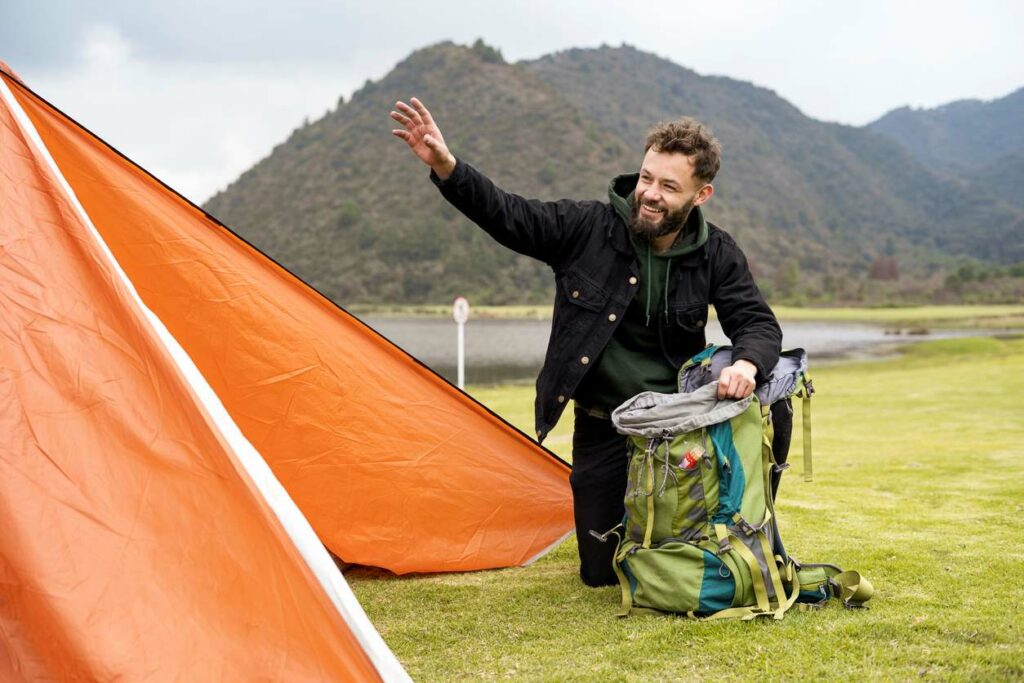How To Store Sleeping Bags and Camping Gear

Proper storage of sleeping bags and camping gear is essential to maintaining functionality for as long as possible. Whether you camp often or this is your first time, it’s critical to know the right cleaning techniques and storage solutions for camping gear.
Learn the best practices for storing sleeping bags and camping gear to prolong their life span and maintain functionality. From proper cleaning techniques to storage solutions for various types of equipment, this blog offers valuable insights for outdoor enthusiasts.
Best Cleaning Practices for Camping Gear and Sleeping Bags
Cleaning Tips for Camping Gear
Typical camping gear includes tents, backpacks, and cooking equipment. Before you put these items back into storage after a camping trip, you should always thoroughly clean them. Here are some of our top tricks for properly cleaning your camping gear.
- Tents. Wipe every part of the surface down and leave it out to air dry.
- Backpacks. If the backpack didn’t get dirty during the trip, perform a spot cleaning. If it did, consider washing it on gentle mode.
- Cooking gear. Each cooking utensil should be thoroughly cleaned with dish soap to ensure all food residue is removed.
If you skip cleaning your camping gear before storing it away for the season, you could come back to mold or other damage to your things.
Cleaning Tips for Sleeping Bags
Many people don’t realize how crucial it is to clean their sleeping bags before storing them. Most sleeping bags have manufacturer’s instructions to guide you on cleaning your particular type of bag, so be sure to check the tag for the best cleaning routine.
Most sleeping bags can be washed in a washing machine on gentle mode using non-detergent soap. It’s better to wash a sleeping bag in a front-loading washing machine because the agitator on top-loading machines can sometimes damage the insulation.
Once you wash the sleeping bag, hang it to dry. Do not remove it from the drying rack until it’s completely dry. Like camping gear, sleeping bags can mold or mildew if stored while wet.
Best Storage Practices for Sleeping Bags and Camping Gear

When it comes to storing your camping gear, finding a reputable self storage facility near you can help ensure your outdoor equipment stays preserved during its time in storage. Luckily, Freedom Storage Management has the space and expertise to help you store everything in the best conditions possible.
Storage Tips for Camping Gear
Camping gear, such as backpacks and cooking equipment, should be stored in a cool, dry place. If you’re storing your items in your home, place them in plastic bins to protect them from humidity or pests that could enter the home.
Tents should also be stored loosely in a cool, dry place. If you can, try to avoid folding the tent in the same way repeatedly. This can repeatedly put stress on the same area, resulting in damage. When storing a tent, roll it out or put it in a larger bag so it’s not being compressed during its entire time in storage.
Storage Tips for Sleeping Bags
The way you store your sleeping bag can significantly impact how well the insulation works and how long it lasts. Avoid storing your sleeping bag in the original sack it came in. This can damage the fill material and reduce its insulating effectiveness.
Find a place to hang the sleeping bag in a cool, dry place. If you need to put it in a bag, consider a more breathable bag, such as a cotton or mesh storage sack.
Storage Organization Tips

Effectively organizing your camping gear can save a lot of time when you’re preparing for your next trip. By storing your gear in clear bins that you label, you can gather your things quickly and head out on your next adventure. Not only will it make that aspect easier, but it can also help you keep track of your equipment’s condition over time.
Check on Your Gear Periodically
When your gear is in storage, it’s a good idea to check on it periodically. Look at all areas of your camping gear and check for signs of mold, mildew, or any other damage. Checking your things periodically allows you to address issues before they become severe. That way, when you’re ready to use your gear, it will be in good condition and ready to take on an adventure.
Consider a Self Storage Unit With Climate-Control
Storing your camping gear and sleeping bags in a cool, dry place is important to ensure their longevity. Basements and garages can sometimes have a lot of humidity, which isn’t good for your gear if exposed long term.
If you can’t find a place in your home suitable for your camping gear, consider renting a self storage unit. Our self storage facilities have climate-controlled options to ensure humidity or pests don’t ruin your gear. By following these storage tips, you can protect your investment and ensure your gear stays in good condition for outdoor adventures.
Contact our self storage professionals to find out about availability and rent or reserve a storage unit today. We can help you find the right unit size for your camping gear.